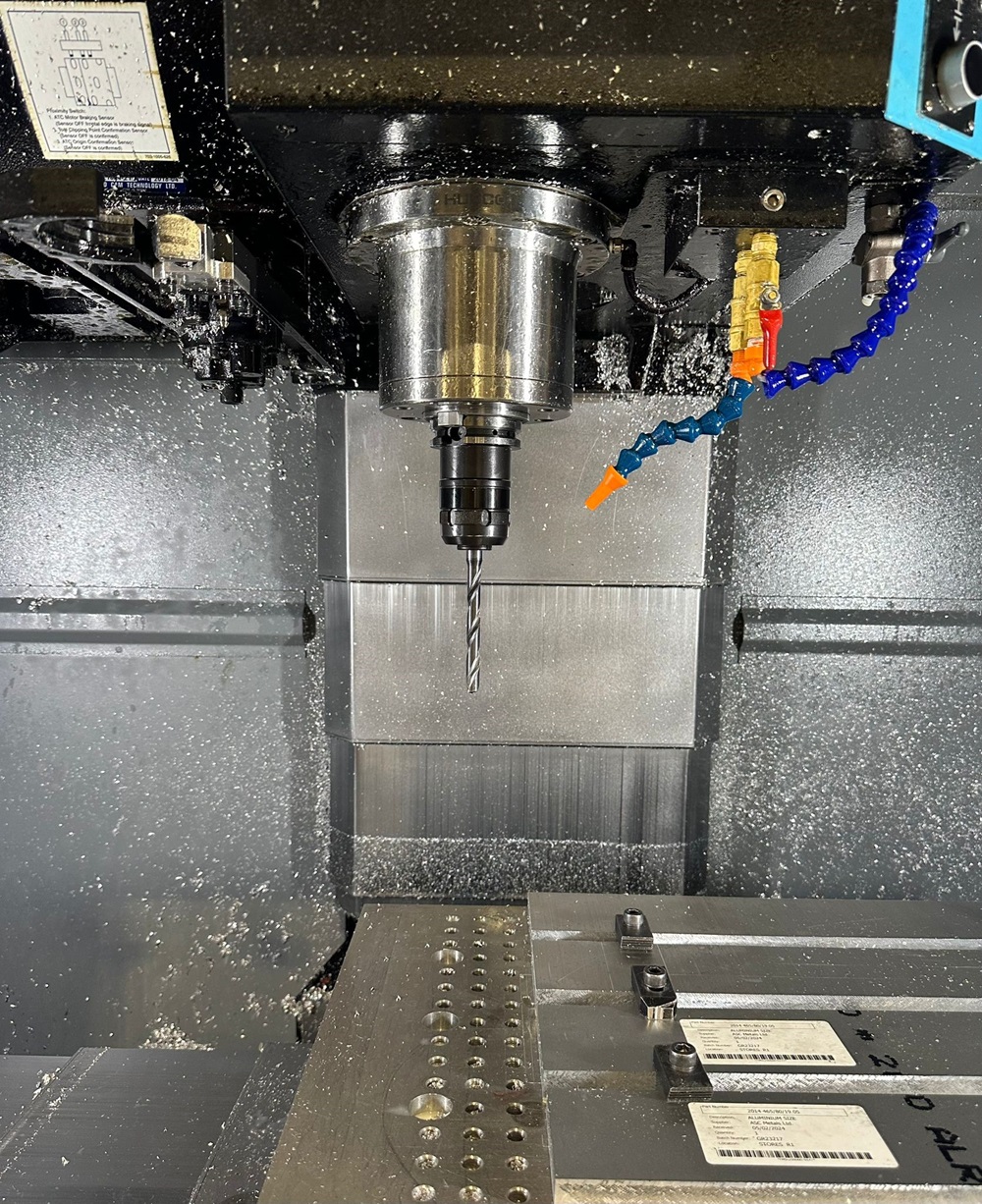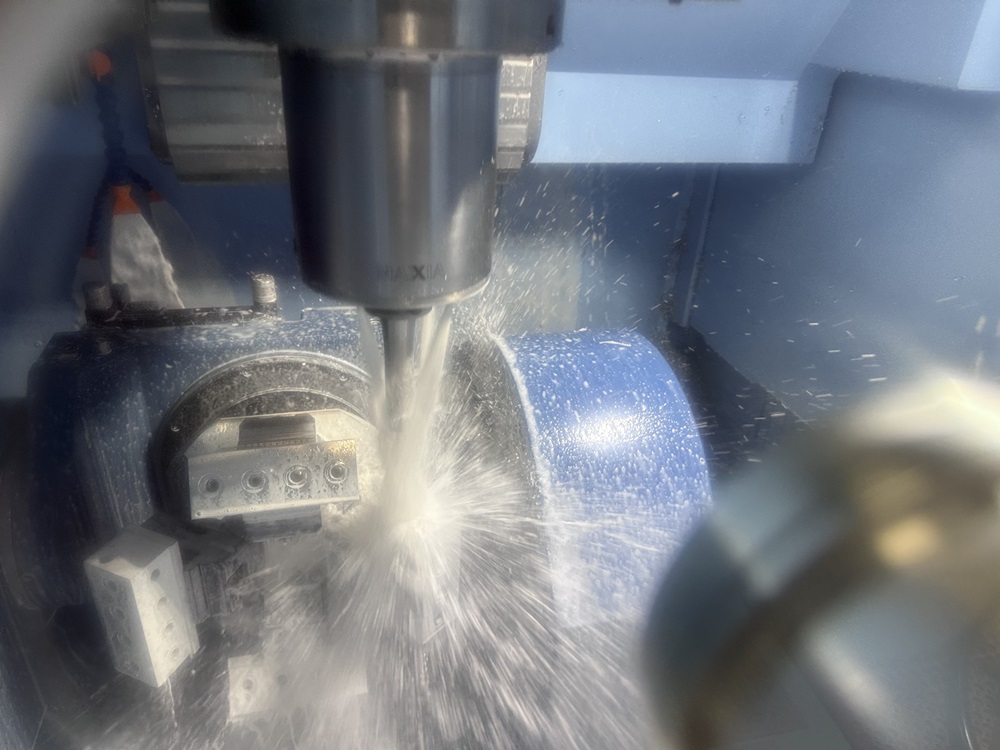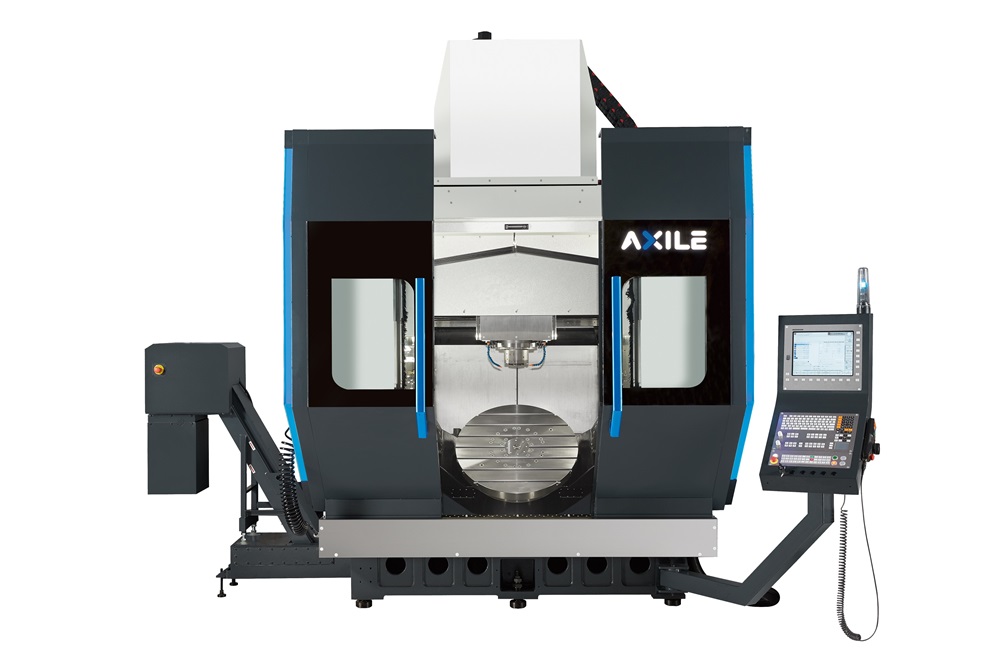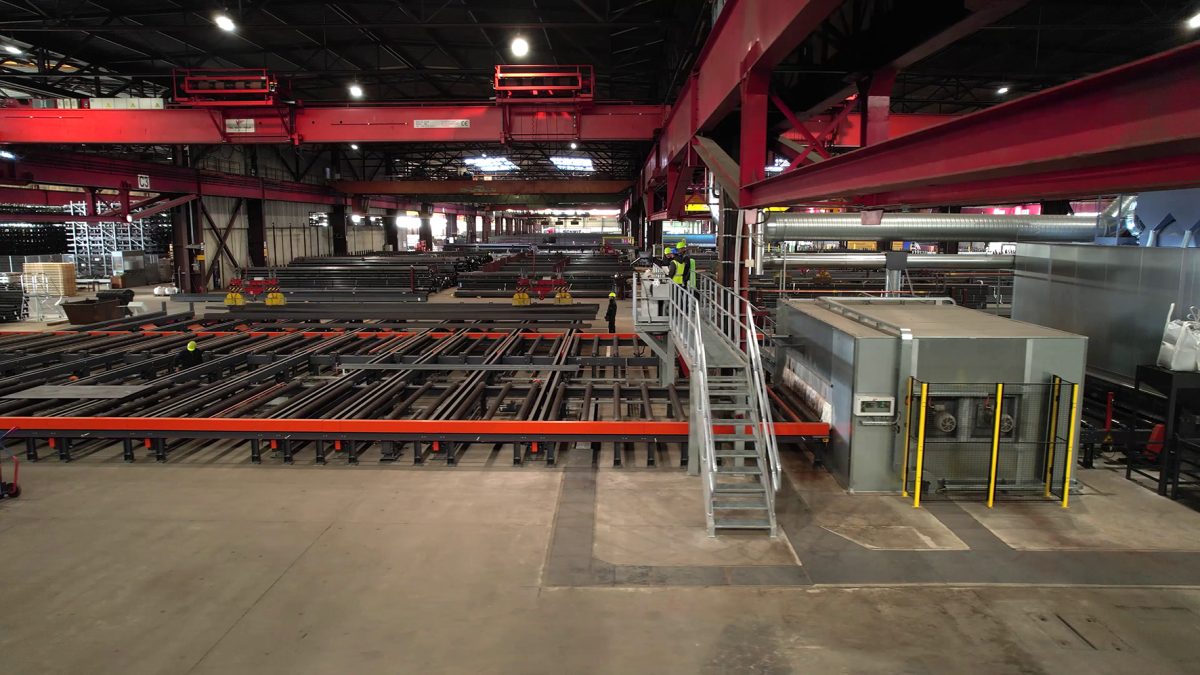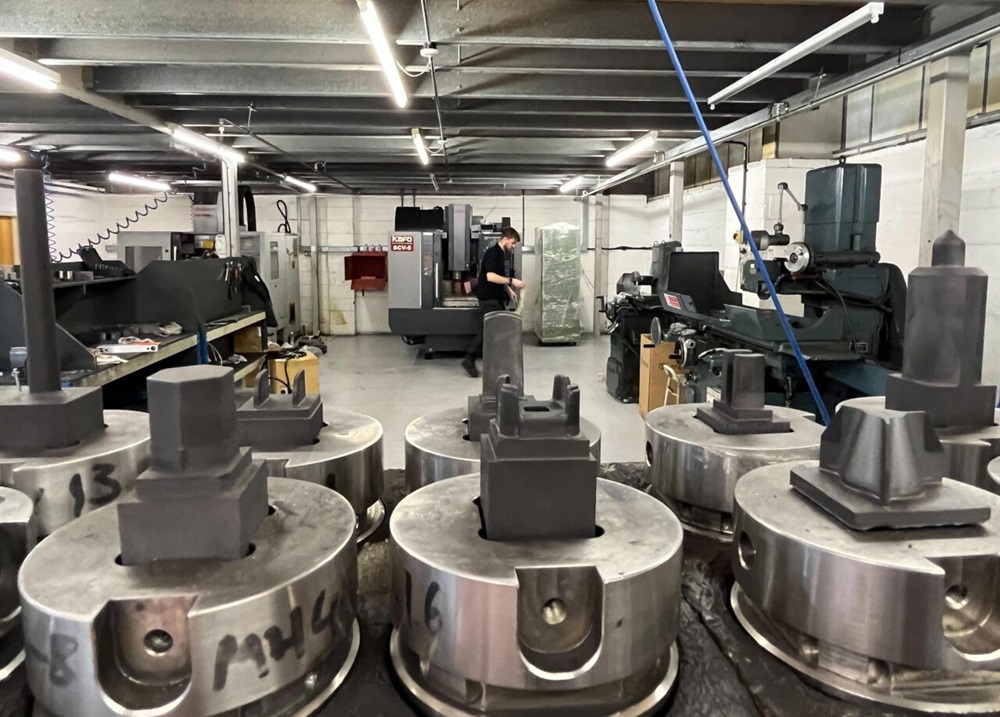In order to meet customer demands faster and more efficiently, the Carl Spaeter Hamburg company expanded its range of manufacturing equipment with a Rösler KON 34/6-HD preservation line that combines shot blasting and painting in a single system. It is designed to handle steel components up to 3200 mm wide, 400 mm high and 21.2 m long.
The line is equipped with two paint systems. Perfectly integrated into an already existing building containing an overhead crane, the new preservation line allows not only a higher material throughput but also improves the entire production flow resulting in shorter lead
times.
Founded in 1905 as hardware store, the Carl Spaeter Hamburg company became one of the leading steel suppliers for retailers, mechanical contractors and industrial manufacturers in northern Germany and beyond. The company’s success is based on a broad line of steel products with an inventory of more than 25,000 tonnes, short delivery times, high operational flexibility and numerous steel processing and refinement services.
Mike Barz, general manager at Carl Spaeter Hamburg, says: “Since our existing shot blast and painting line had reached the end of its useful life, and because we wanted to improve our customer support, we purchased the KON 34/6-HD from Rösler.”
The equipment supplier won this substantial purchase order against two competitors, firstly because Rösler adapted its equipment concept to the customer’s requirements. At the same time the customer was impressed by the quality and sturdy equipment design and Rösler could show several reference plants in the field.
Reyk Hagelberg, plant manager at Carl Spaeter Hamburg, says: “Within a very short time period Rösler, with input from us, developed a viable equipment concept that was perfectly adapted to our existing building and our technical requirements.”
A critical customer demand was that the line must be able to handle steel components, up
to 3200 mm wide, 400 mm high and 21.2 m long. Moreover, Rösler had to make sure it was possible to shot blast steel plates with a thickness of 4 mm with the same high-quality cleaning results as plates with a thickness of 100 mm. An additional requirement was the perfect blasting and painting of all surface areas and steel beam edges. Since the steel components have a maximum weight of 12 tonnes, the design of the roller conveyors and cross transport systems had to be extra sturdy.
Special sensors measure the height of the steel components (also width in the case of steel plates). These sensors sit on inlet roller conveyor of the preservation line. The PLC then automatically determines how many turbines require turning on to clean the respective components. Other parameters like travel speed, paint type and paint thickness are also part of the processing programs, which reside in the PLC ready for calling up from the operating panel.
In a first step the steel components pass through a pre-heater that prevents moisture from carrying into the shot blast machine. The system guides exhaust air from the pre-heater to the paint drier, which helps to reduce the drying time of the applied paint.
From the pre-heater, workpieces transfer to the shot blast machine. The machine housing is made from manganese steel. In addition, the blast chamber is lined with overlapping liners made from manganese steel. Eight high-performance Gamma 400G turbines, each with a drive power of 22 kW, ensure that the specified cleanliness of SA 2.5 is consistently and safely achieved at a travel speed of up to 4 m/min. Compared with conventional blast wheels, the Gamma turbines with curved throwing blades in ‘Y’ design achieve up to 20 % higher blast performance and, at the same time, reduce energy consumption, reports Rösler. Residual blast media and dust on the shot blasted components is removed with a combined brush-off/blow-off system at the exit of the blast chamber.
To meet individual customer requirements for the coating operation utilising a water-based
primer, the integrated automated spraying equipment features two independent paint application systems. Prior to the paint process, special sensors precisely measure the
workpiece dimensions – down to the last millimetre.
The gantry holding the spray guns is then programmed for these measurements, ensuring that the primer is only applied to the surface of the respective steel components. The result is a minimum of overspray and the prevention of unnecessary waste of the valuable resource paint. The paint filter with air extraction points on both sides of the transport system collects any residual paint overspray.
The filter is extremely effective: the residual dust load in the clean air is only 0.2 mg/m3
and, therefore, considerably below the official standard specifying a maximum of 1 to 2
mg/m3. Notably, the residual dust in the clean air coming from the dust collector of the shot blast machine amounts to 1 mg/m3, well below the legal limit of 3 mg/m3.
“With the new Rösler preservation line we can run our surface treatment operations for steel plates, beams, pipes/tubes and steel bars not only with an excellent finishing quality but also in a highly eco-friendly manner,” says Hagelberg.
Heating the paint drier with exhaust air from the pre-heating system is a further contributor towards resource-saving operations.
The workpiece transport system of the new preservation line was integrated into a building with an existing overhead crane at Carl Spaeter. The roller conveyors with forward and
reverse transport direction cover all four building bays with an area of over 42,000 sq m. This arrangement guarantees a highly flexible material handling operation.
For example, it allows the transport of steel components from anywhere in the building to
the preservation line, to other areas in the building or to the truck load station. The cross-
transport systems, placed to the left and right of the roller conveyor, offer plenty of capacity
for the intermediate storage of steel components.
“With the new preservation line and the resulting further steel processing and refinement possibilities we can fulfil customer requests faster and more efficiently,” says Barz. “This helps to reduce our lead times. In addition, the new line, in combination with the roller conveyors and cross-transport systems, improves our logistical set-up with shorter walking distances for our employees and streamlines our entire workflow.”
For further information www.rosler.com






